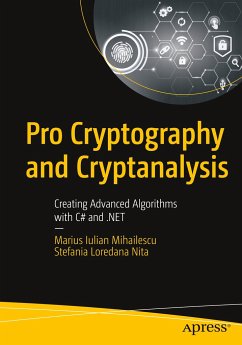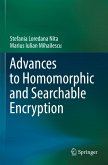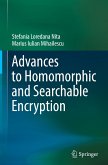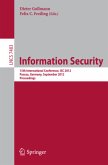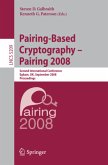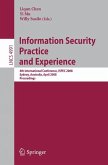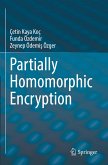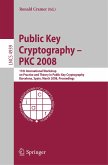Utilize this comprehensive, yet practical, overview of modern cryptography and cryptanalysis to improve performance. Learn by example with source code in C# and .NET, and come away with an understanding of public key encryption systems and challenging cryptography mechanisms such as lattice-based cryptography.
Modern cryptography is the lifeboat of a secure infrastructure. From global economies and governments, to meeting everyday consumer needs, cryptography is ubiquitous, and used in search, design, data, artificial intelligence, and other fields of information technology and communications. Its complexity can lead to misconfiguration, misuse, and misconceptions. For developers who are involved in designing and implementing cryptographic operations in their applications, understanding the implications of the algorithms, modes, and other parameters is vital.
Pro Cryptography and Cryptanalysis is for the reader who has a professional need or personal interest in developing cryptography algorithms and security schemes using C# and .NET. You will learn how to implement advanced cryptographic algorithms (such as Elliptic Curve Cryptography Algorithms, Lattice-based Cryptography, Searchable Encryption, Homomorphic Encryption), and come away with a solid understanding of the internal cryptographic mechanisms, and common ways in which the algorithms are correctly implemented in real practice. With the new era of quantum computing, this book serves as a stepping stone to quantum cryptography, finding useful connections between current cryptographic concepts and quantum related topics.
What You Will Learn
Know when to enlist cryptography, and how it is often misunderstood and misusedExplore modern cryptography algorithms, practices, and propertiesDesign and implement usable, advanced cryptographic methods and mechanismsUnderstand how new features in C# and .NET impact the future of cryptographic algorithmsUse the cryptographic model, services, and System.Security.Cryptography namespace in .NETModernize your cryptanalyst mindset by exploiting the performance of C# and .NET with its weak cryptographic algorithmsPractice the basics of public key cryptography, including ECDSA signaturesDiscover how most algorithms can be broken
Who This Book Is For
Information security experts, cryptologists, software engineers, developers, data scientists, and academia who have experience with C#, .NET, as well as IDEs such as Visual Studio, VS Code, or Mono. Because this book is for an intermediate to advanced audience, readers should also possess an understanding of cryptography (symmetric and asymmetric) concepts.
Modern cryptography is the lifeboat of a secure infrastructure. From global economies and governments, to meeting everyday consumer needs, cryptography is ubiquitous, and used in search, design, data, artificial intelligence, and other fields of information technology and communications. Its complexity can lead to misconfiguration, misuse, and misconceptions. For developers who are involved in designing and implementing cryptographic operations in their applications, understanding the implications of the algorithms, modes, and other parameters is vital.
Pro Cryptography and Cryptanalysis is for the reader who has a professional need or personal interest in developing cryptography algorithms and security schemes using C# and .NET. You will learn how to implement advanced cryptographic algorithms (such as Elliptic Curve Cryptography Algorithms, Lattice-based Cryptography, Searchable Encryption, Homomorphic Encryption), and come away with a solid understanding of the internal cryptographic mechanisms, and common ways in which the algorithms are correctly implemented in real practice. With the new era of quantum computing, this book serves as a stepping stone to quantum cryptography, finding useful connections between current cryptographic concepts and quantum related topics.
What You Will Learn
Know when to enlist cryptography, and how it is often misunderstood and misusedExplore modern cryptography algorithms, practices, and propertiesDesign and implement usable, advanced cryptographic methods and mechanismsUnderstand how new features in C# and .NET impact the future of cryptographic algorithmsUse the cryptographic model, services, and System.Security.Cryptography namespace in .NETModernize your cryptanalyst mindset by exploiting the performance of C# and .NET with its weak cryptographic algorithmsPractice the basics of public key cryptography, including ECDSA signaturesDiscover how most algorithms can be broken
Who This Book Is For
Information security experts, cryptologists, software engineers, developers, data scientists, and academia who have experience with C#, .NET, as well as IDEs such as Visual Studio, VS Code, or Mono. Because this book is for an intermediate to advanced audience, readers should also possess an understanding of cryptography (symmetric and asymmetric) concepts.

